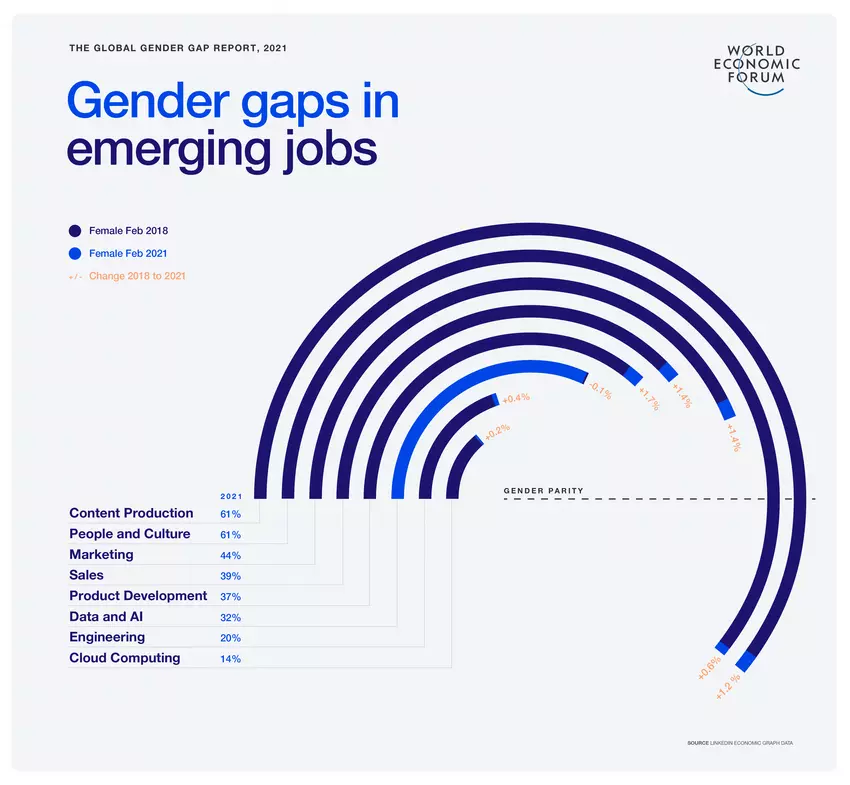According to the UNESCO Science Report 2021, women are underrepresented in a vast number of STEM fields such as mathematics, physics, computing and digital information technology.
In artificial intelligence for example, women account for just 22% of workers, and also make up just a third of researchers worldwide. Cloud computing is another sector that is dominated by men, with just 14% of the workforce being made up of women.

Gender gaps are much more likely in sectors that require disruptive technical skills, with women often missing out due to being less likely to access funding in education. For example, they are less likely to receive grant funding despite being twice as productive.
A highly qualified workforce is key to driving the Fourth Industrial Revolution, and with women often being looked over it could affect its momentum. The report advises governments, the education sector and corporations to make big changes to attract and retain women in STEM areas.
UNESCO implores that women be given equal access to education and information that will allow them to compete on an equal footing with men for the jobs of the future, whilst changes must be made to ensure women don’t spend a disproportionate amount of time completing unpaid labour in the home.



0 Comments